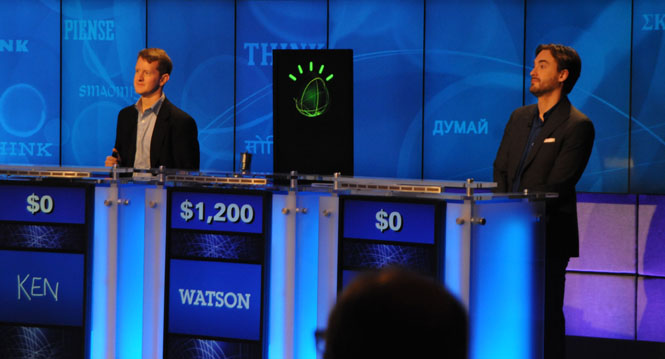It didn’t take long for IBM’s demonstration of the question-answering prowess in the Jeopardy-winning Watson system to find some backers: IBM has announced a deal with Nuance Communications to apply Watson’s Deep Question Answering technology the healthcare field. The research partnership will also address one of the key shortcomings Watson demonstrated on Jeopardy, combining Watson’s analytical skills with speech recognition technology so the system can understand what people say, rather than having to have queries posed to it as pure text.

“Combining our analytics expertise with the experience and technology of Nuance, we can transform the way that healthcare professionals accomplish everyday tasks by enabling them to work smarter and more efficiently,” said IBM senior VP and director of research Dr. John E. Kelly III, in a statement. “This initiative demonstrates how we plan to apply Watson’s capabilities into new areas, such as healthcare with Nuance.”
The Columbia University Medical Center and the University of Maryland School of Medicine will also work on the project. Nuance and IBM hope to have the direct products based on the technology ready to come to market in 18 to 24 months. The project will also leverage Nuance’s Clinical Language Understanding solutions to improve Watson’s understanding of medical vocabulary and terminology.
The healthcare industry’s interest in Watson comes from the system’s seeming ability to quickly process information available in natural language—rather than deliberately encoded for computer processing—and make rapid, high-level connections between key items of information from disparate sources. The technology could be applied to help healthcare professional keep up with the vast amounts of clinical data and scientific research being published in the healthcare field every day; looking forward, Watson technology could be applied to some of the applications that have along been envisioned for so-called “strong AI” systems, like drug interactions and real-time diagnoses.
[Image: IBM]
Editors' Recommendations
- AI could replace around 7,800 jobs at IBM as part of a hiring pause
- IBM will no longer develop or research facial recognition tech
- MIT and IBM’s new A.I. image-editing tool lets you paint with neurons


